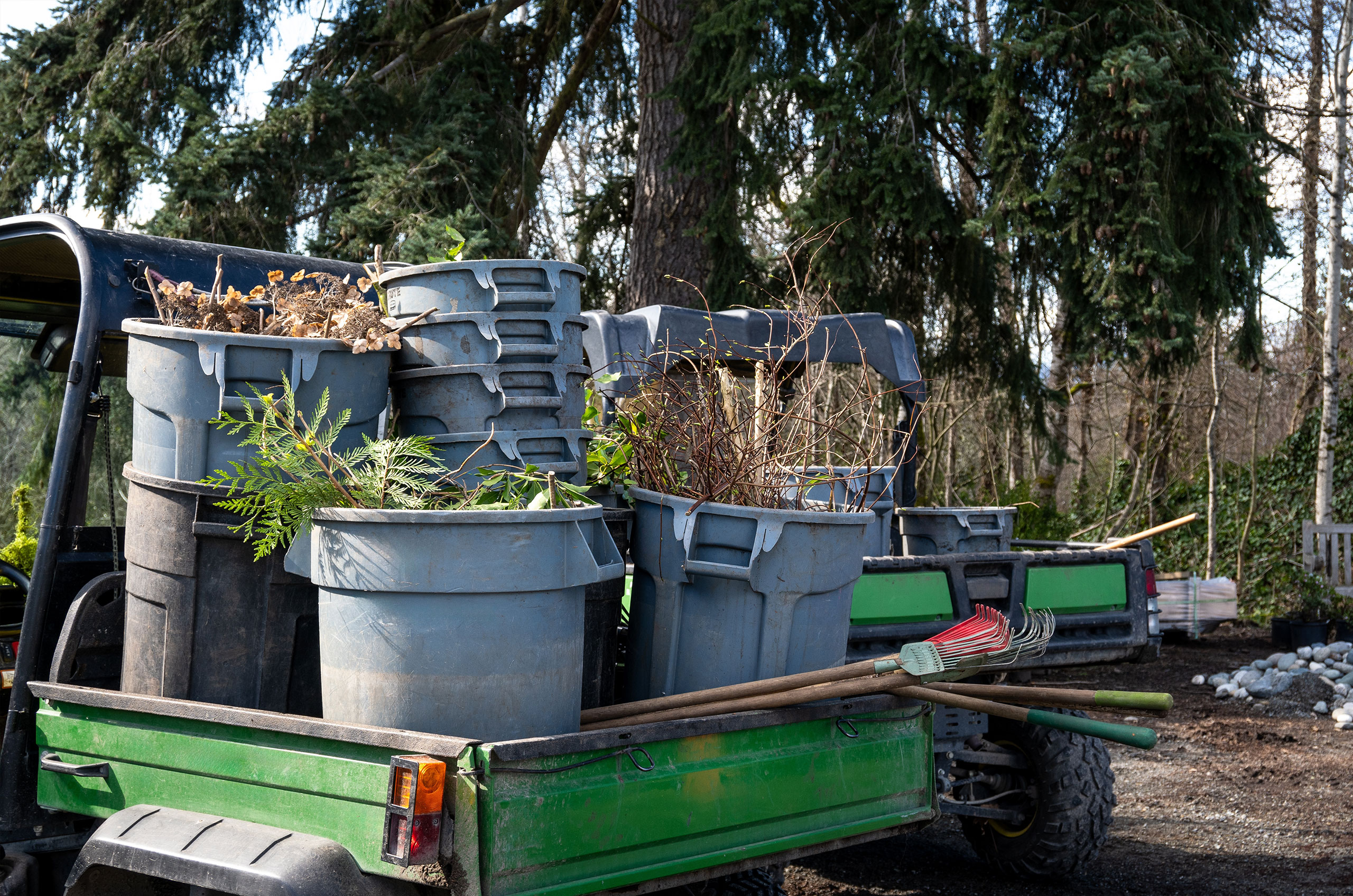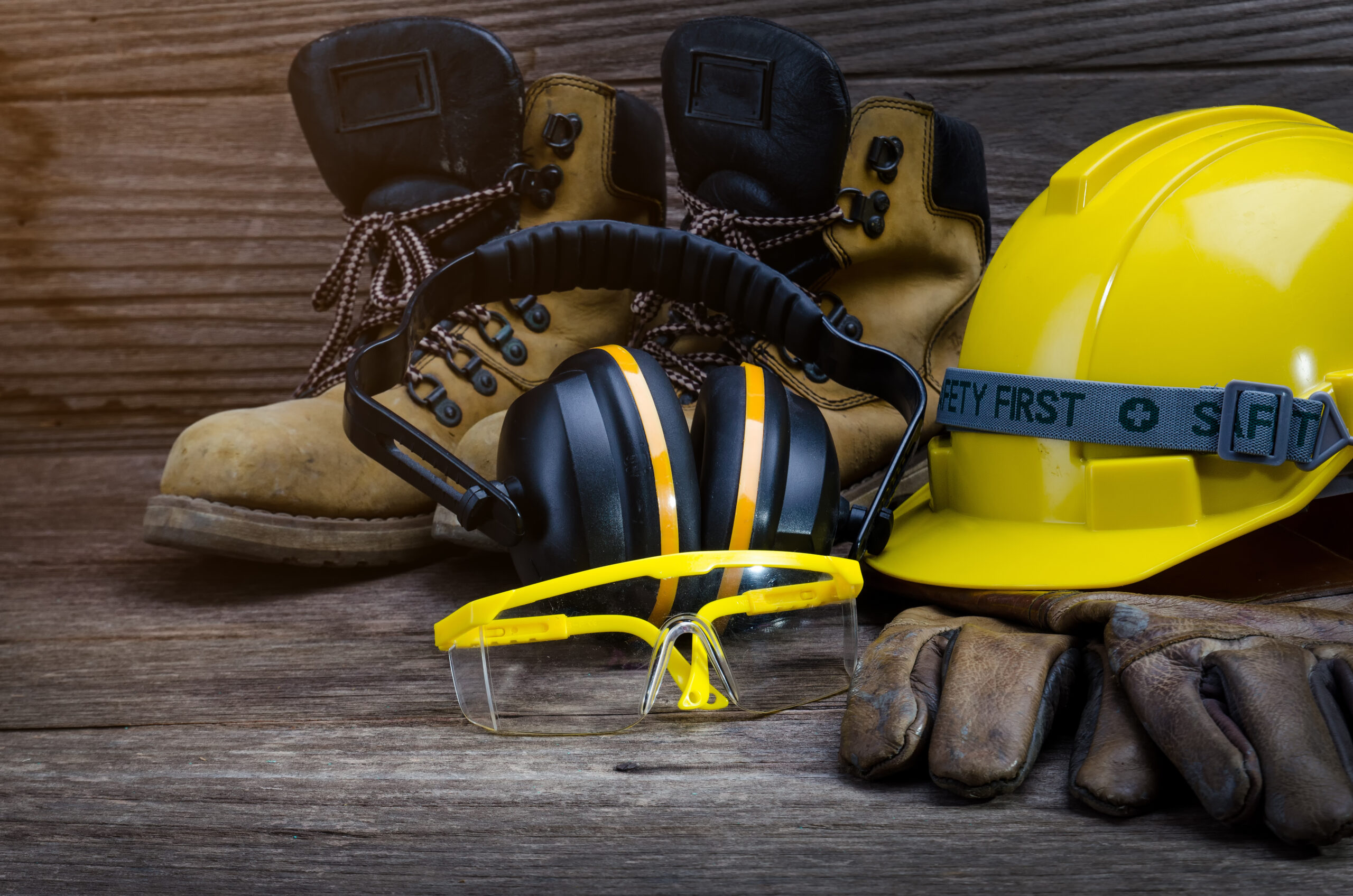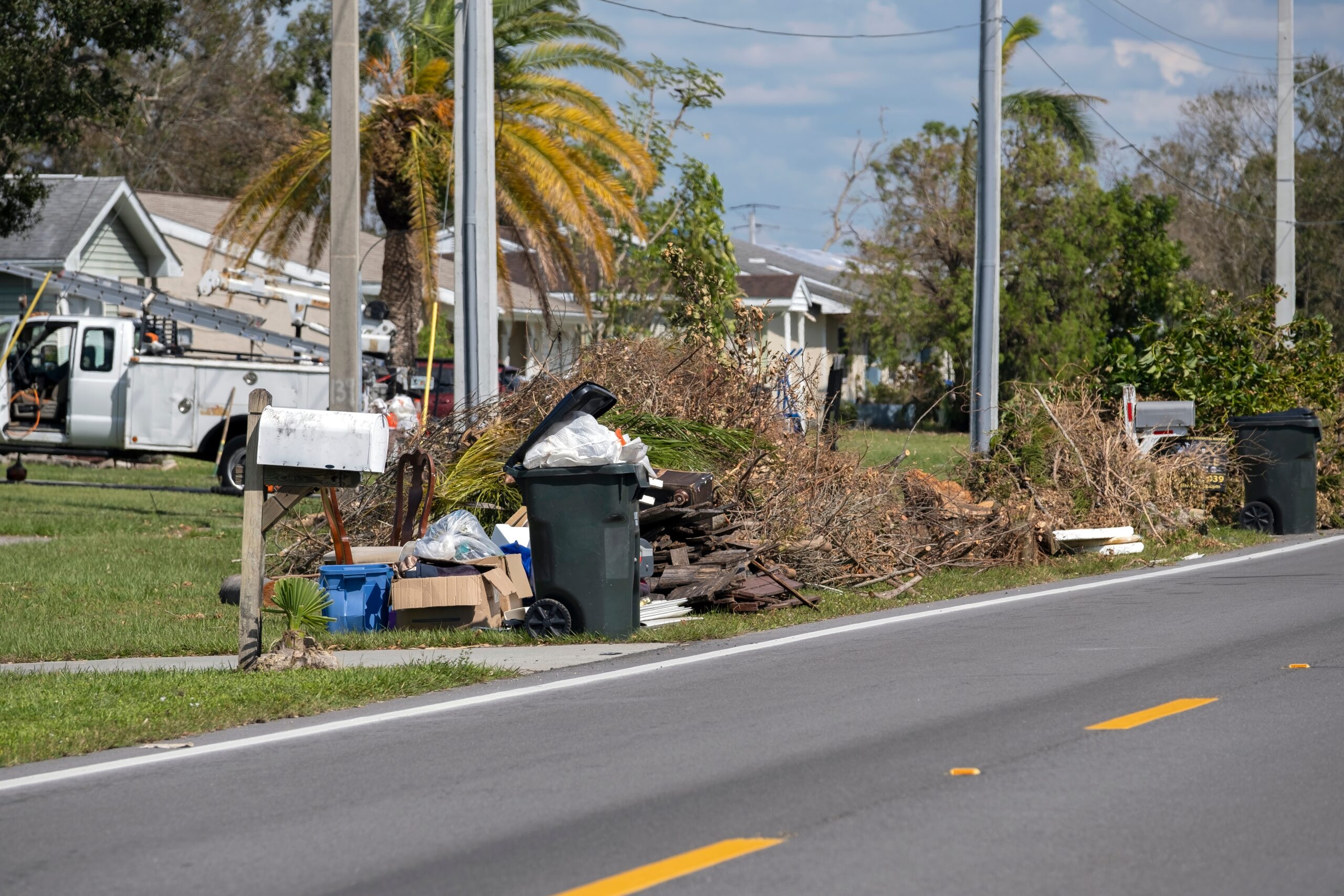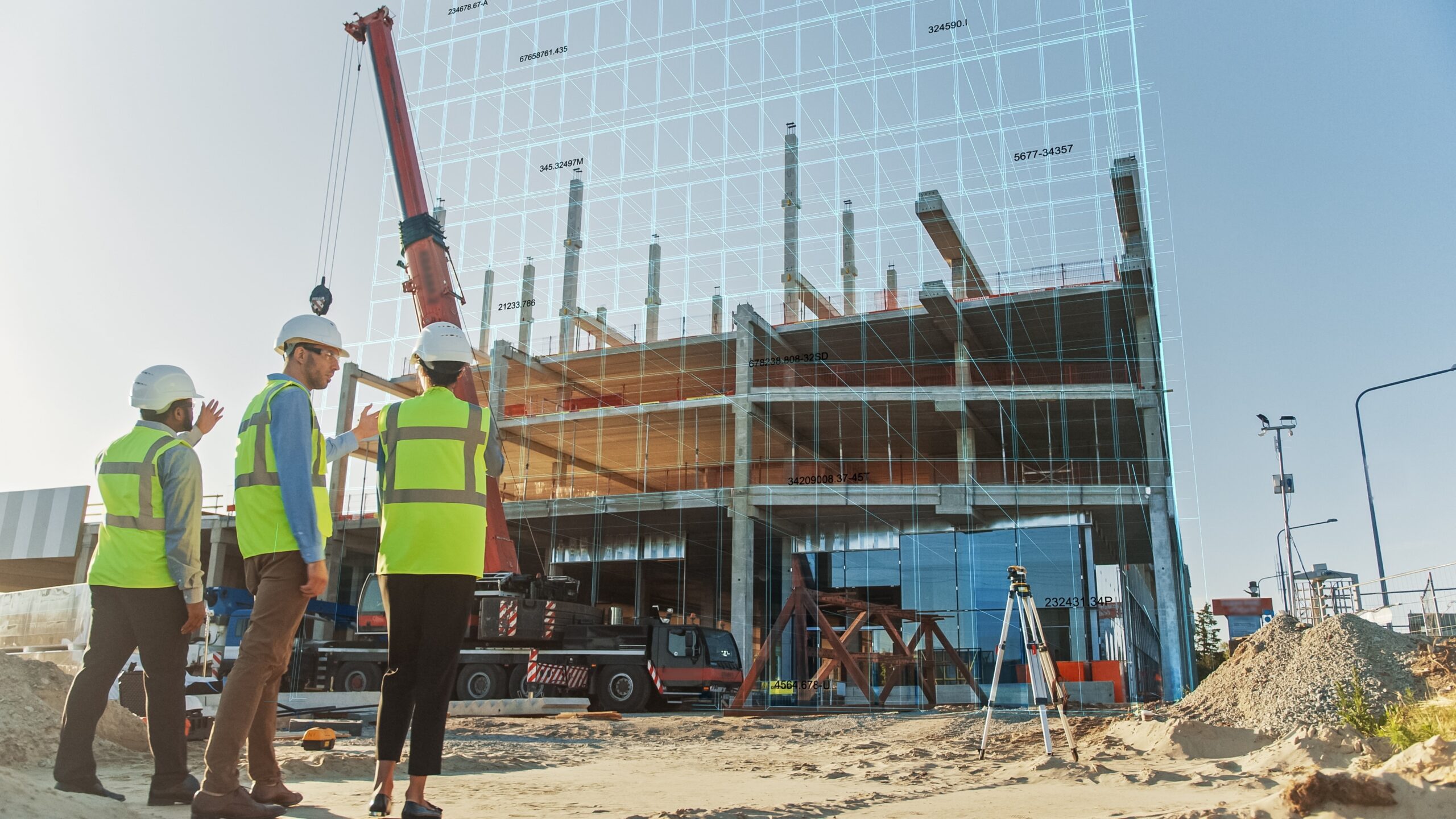How to Safely and Efficiently Handle Post-Storm Debris in Montgomery and Surrounding Areas
Severe weather is a reality in Alabama. From strong thunderstorms and tornado activity to heavy winds and seasonal hurricanes, storm damage can leave homeowners dealing with fallen trees, damaged fencing, roofing debris, and scattered yard waste. When cleanup begins, having a clear disposal plan is essential.
If you are facing post-storm debris, this guide will walk you through how to choose the right dumpster, load it properly, and keep your property safe during cleanup.
Why a Roll-Off Dumpster Is Ideal for Storm Cleanup
After a storm, debris tends to be:
- Heavy
- Bulky
- Mixed (wood, shingles, branches, drywall, fencing)
- Wet and weight-intensive
- Centralize debris in one location
- Avoid multiple trips to disposal sites
- Keep your yard and driveway organized
- Work at your own pace
Common Types of Storm Debris
Understanding what you are disposing of helps determine the right container size and weight allowance.
-
Tree & Yard Debris
- Fallen limbs
- Branches and brush
- Leaves and organic material
- Fence sections
-
Roofing Materials
- Asphalt shingles
- Underlayment
- Damaged flashing
-
Structural & Exterior Damage
- Siding
- Deck boards
- Drywall
- Insulation
- Flooring
Choosing the Right Dumpster Size
For most Alabama residential storm cleanup projects:
10-Yard Dumpster
: Minor yard cleanup, small fence damage20-Yard Dumpster
: Moderate storm damage, roofing tear-offs30-Yard Dumpster
: Major tree removal or multi-area property cleanup
Important Weight Considerations
Storm debris is often heavier than expected due to:
- Rain-soaked wood
- Saturated drywall
- Mud attached to root systems
- Roofing shingles
- Do not fill above the container’s top rail
- Distribute heavy materials evenly
- Break down large branches
- Ask about heavy debris guidelines if disposing of dirt, concrete, or brick
Safe Placement Tips for Your Dumpster
Choose a location that is:
- Flat and stable
- Accessible for delivery trucks
- Away from low power lines or tree limbs
- Clear of vehicles and obstacles
Materials Typically NOT Allowed
During storm cleanup, you may also uncover items from sheds or garages. Common restricted items include:
- Paints and solvents
- Chemicals or pesticides
- Propane tanks
- Batteries
- Tires
- Electronics
Scheduling After a Major Storm
Demand for dumpsters increases significantly after severe weather events. To secure availability:
- Call as soon as possible
- Be flexible with delivery timing
- Communicate debris type clearly
- Consider scheduling swap service for larger projects
Final Cleanup Checklist
Before pickup:
- Ensure debris is below the fill line
- Remove prohibited materials
- Keep access clear for the driver
- Confirm pickup schedule
Why Alabama Homeowners Rely on Professional Dumpster Services by Montgomery Dumpster Rental
Storm cleanup is physically demanding and time sensitive. Renting a roll-off dumpster provides:
- Controlled debris management
- Faster property restoration
- Reduced risk of injury
- Fewer disposal trips
- Compliance with local waste regulations
FAQ - Storm Cleanup Dumpster Rental Guide
Q: What size dumpster is best for storm cleanup in Alabama?
A: For minor yard debris or small fence damage, a 10-yard dumpster may be sufficient. For roofing materials, moderate tree removal, or multi-room cleanup, a 20-yard container is typically ideal. Larger storm damage involving major tree removal or widespread debris may require a 30-yard dumpster.Q: Can I put fallen trees and large branches in a roll-off dumpster?
A: Yes, branches and cut tree limbs are generally accepted. However, they should be cut into manageable lengths and stacked efficiently. Large tree trunks or root balls may require special handling or weight consideration.Q: Are roofing shingles allowed in a storm cleanup dumpster?
A: Yes, asphalt shingles are commonly accepted. Because shingles are dense and heavy, it is important to stay within weight limits and follow loading guidelines to avoid overage charges.Q: Can I mix yard debris and construction debris in the same dumpster?
A: In most cases, yes. Mixed storm debris such as wood, fencing, drywall, siding, and brush can typically be loaded together. Always confirm specific material restrictions before loading.Q: What items are not allowed in a storm cleanup dumpster?
A: Prohibited items typically include hazardous chemicals, paints, solvents, propane tanks, batteries, tires, electronics, and certain appliances. If your storm cleanup includes shed or garage contents, confirm disposal rules in advance.Q: Do I need a permit to place a dumpster after a storm?
A: If the dumpster is placed on private property such as a driveway, a permit is usually not required. If placement is on a public street or right-of-way, local regulations may require a permit.Q: How soon should I schedule a dumpster after a major storm?
A: As soon as possible. Demand increases significantly after severe weather events in Alabama. Early scheduling helps ensure container availability and timely delivery.Q: Will wet storm debris increase dumpster weight?
A: Yes. Rain-soaked wood, drywall, and organic material can significantly increase weight. Distribute heavy debris evenly and avoid overfilling to prevent additional charges.Q: How long can I keep the dumpster for storm cleanup?
A: Rental periods vary, but most providers offer flexible terms depending on project scope. Discuss your estimated cleanup timeline when booking to ensure adequate rental duration.Q: What is the safest way to load storm debris into a dumpster?
A: Place heavier materials on the bottom, break down large items, stack debris tightly, and keep materials below the fill line. Always wear protective gear and avoid climbing inside the container.Here’s How to Rent a Dumpster
- Contact us about portable dumpster rentals online today or call 334-271-6900.
- Let us know your timeline and we’ll quote a simple 7-day flat rate with no hidden fees.
- This portable dumpster rental includes delivery, pickup and waste disposal.
Questions about residential dumpster renting, we are experts in trash handling and are here to help you with your portable dumpster rental and your overall waste management needs.










